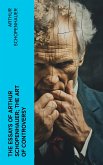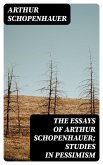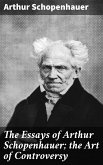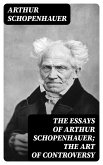Aristotle is one of the significant works of the British Neoplatonist A.E. Taylor. He gives a good summary of Aristotle's philosophy. Taylor discusses the similarities and differences between Aristotle and Plato and covers the influence of Aristotle on medieval thought and the further development of science and philosophy.
Dieser Download kann aus rechtlichen Gründen nur mit Rechnungsadresse in A, B, BG, CY, CZ, D, DK, EW, FIN, F, GR, H, IRL, I, LT, L, LR, M, NL, PL, P, R, S, SLO, SK ausgeliefert werden.









